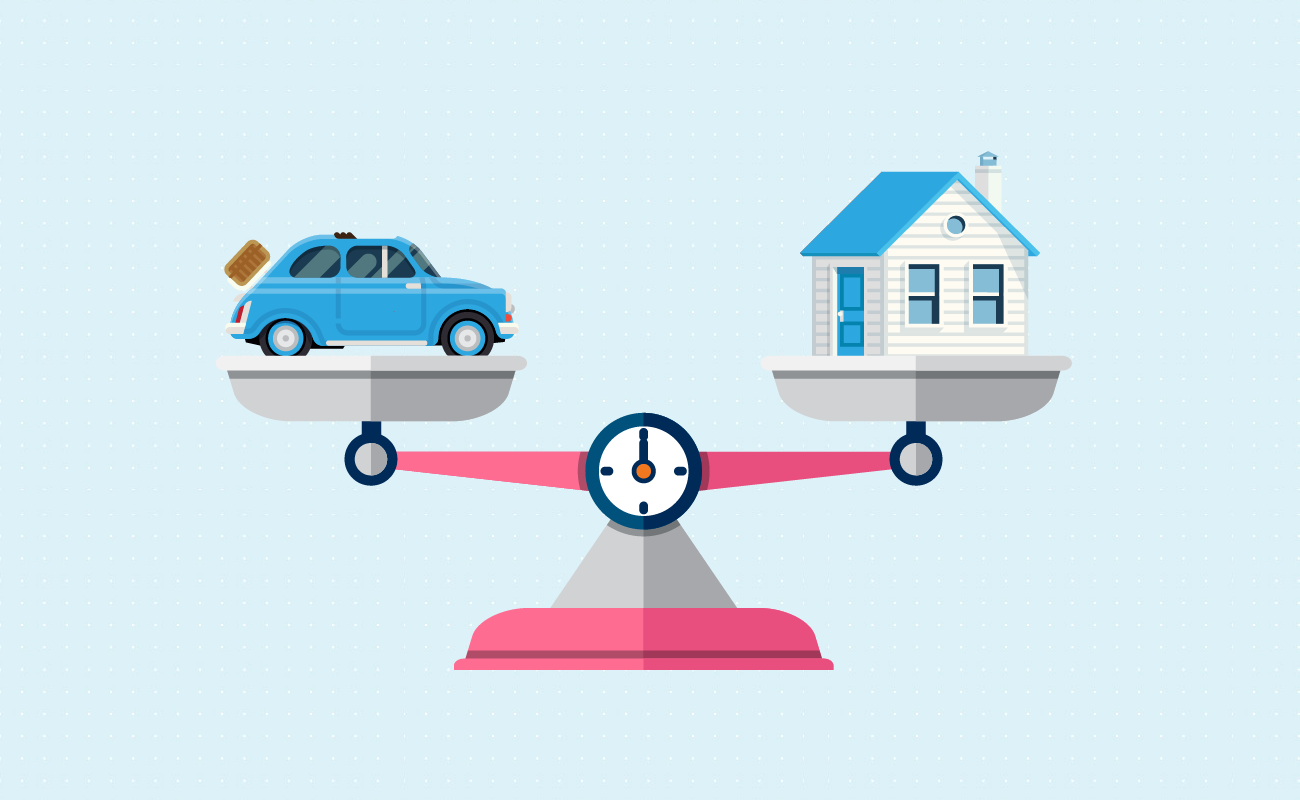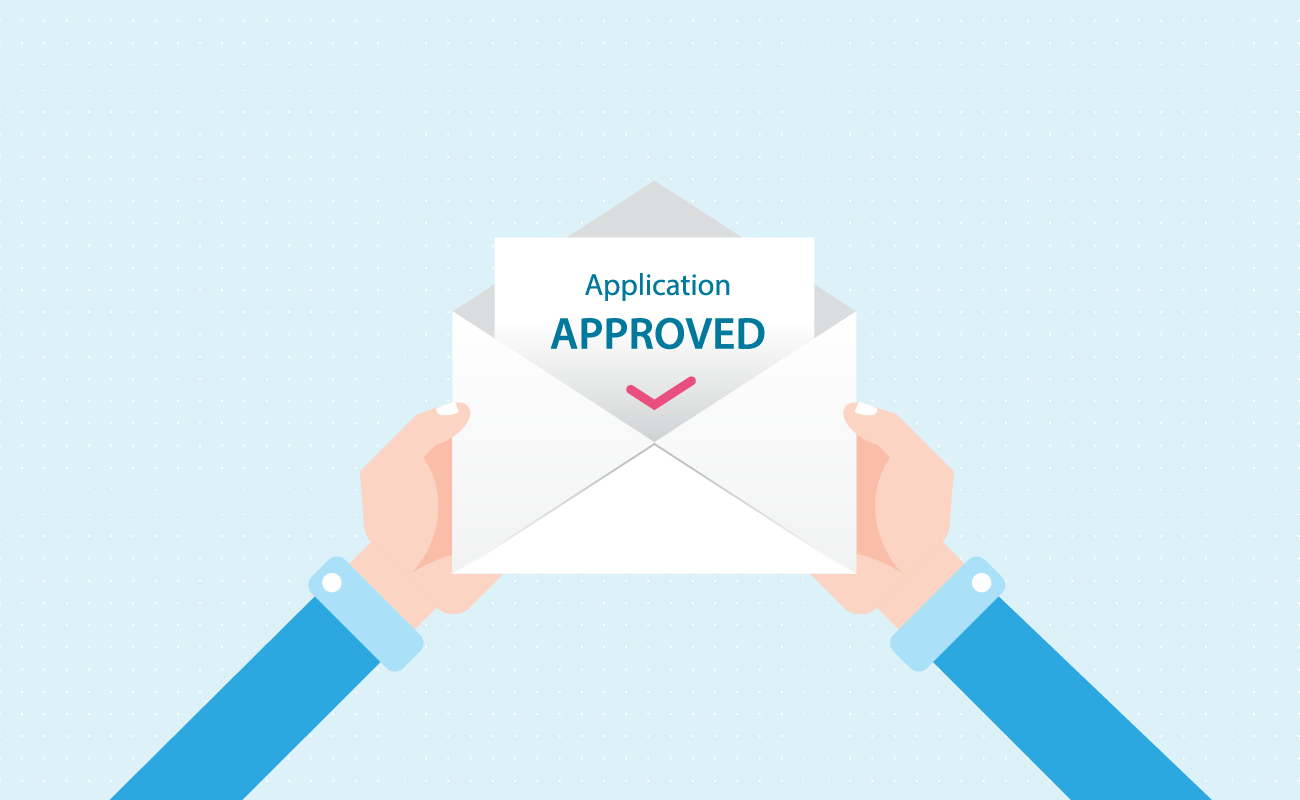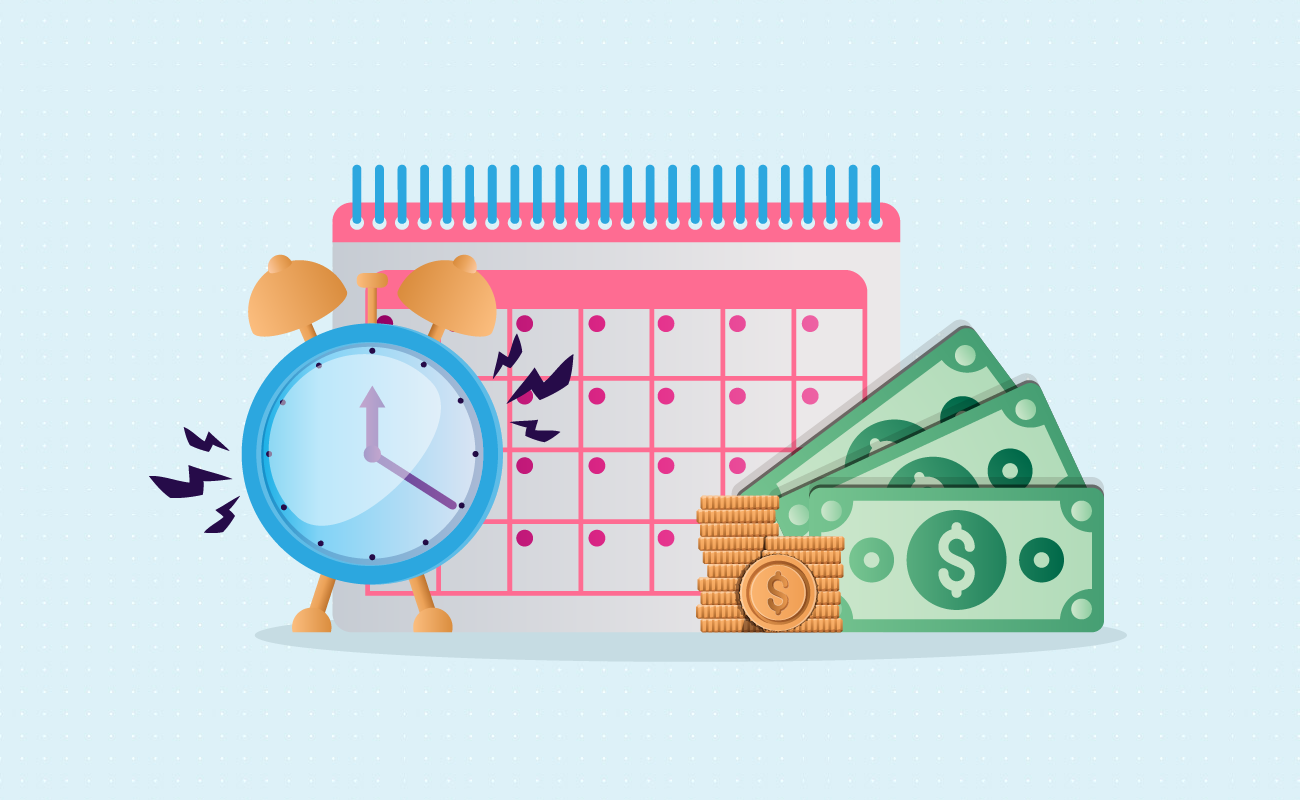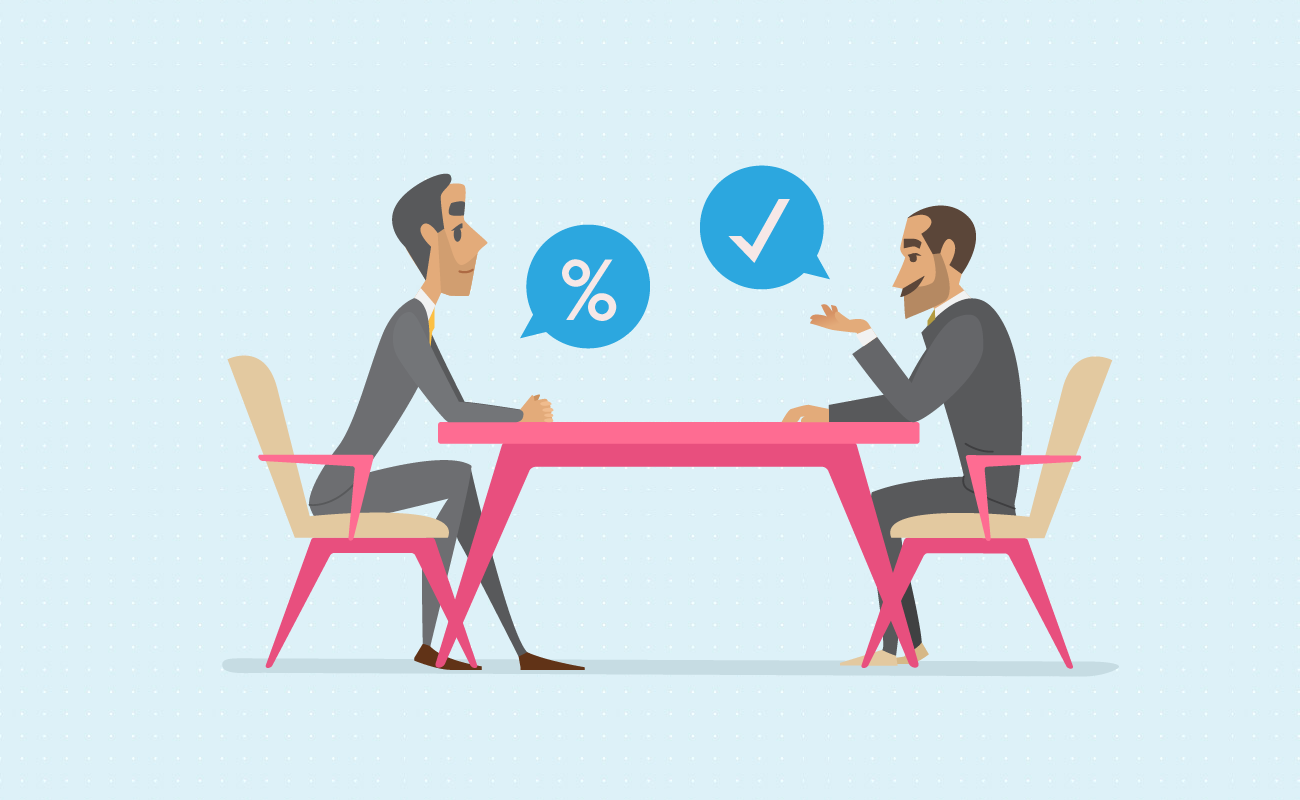Auto Loans
Affordability
Loan Payment Options
Biweekly Payments
Compare Rate & Term
Rebate vs Low Interest
Home Equity Loans
Lease or Buy
 Car Loan vs Home Equity Loan Calculator
Car Loan vs Home Equity Loan CalculatorThis calculator will help you to decide whether you should finance your car using an auto loan or using a home equity loan. Historically most mortgage interest was tax deductible, but the 2017 Tax Cuts and Jobs Act changed deductibility for the time being for mortgage debt that is not associated with buying a home or substantially improving or upgrading a ome. To remove income taxes from your calculation please set the marginal tax rate to 0 unless you live in a jurisdiction outside the United States which allows you to deduct second mortgage interest when the loan funds are used for a non-home related expense.
Guide published by Jose Abuyuan on July 1, 2020

According to Attom Data Solutions, about one in four American homeowners are “equity-rich.” That is, they owe less than 50 percent of their home’s value through their mortgage. That’s a lot of illiquid wealth just lying around. Thus, the idea of leveraging home equity financing seems pretty tempting.
You might think it’s not a bad deal. After all, you’ve paid off most (or all) of your mortgage. What’s another bill to the pile? And in some cases, you might even be right. As long as you can pay your loans on time, you shouldn’t have a problem. But is it really wise to use your home as collateral for loan payments?
In 2018, consumer credit reporting agency TransUnion expected more than 1.6 million lines of credit to be backed by home equity. This is double the amount of home equity credit lines in 2013. Today, it is easy for the average American homeowner to leverage home equity or “second mortgage” financing to meet their needs. Banks and other lenders approve these loans quite readily.
Much like mortgages, home equity loans use the house as collateral. This option becomes viable when your home equity exceeds your mortgages. Consumers can take this option if one of these two conditions are met:
Suppose you have a home worth $220,000 but with a mortgage of $150,000. You have the option of using the $70,000 as equity loan collateral. In general, the amount you can borrow would be higher the smaller your mortgage balance is. You may also seek this option if you own your entire home.
The amount lenders are willing to give depends on your creditworthiness. They also review your remaining debts. Borrowing is often limited to 85 percent of your home’s equity. You can expect a much higher loan if your finances are in good standing.

If you’re using home equity financing to buy a car, it’s best if you borrow only the amount you need.
Home equity-based financing is an excellent addition to your financial arsenal. Today, they have low interest rates, which can entice many would-be buyers. Moreover, they also offer much longer repayment periods. This translates to a much smaller monthly payment. These two options can make home equity financing attractive to homeowners who are struggling with debt. The loan can let you consolidate all other debts, which can help you reduce your total interest costs.
However, there’s no restriction to what you can use home equity money for. You can use home equity financing to pay for anything you might need. Most people take out second mortgages to finance major expenses like home improvement.
All loans need some type of collateral. This is an asset used by the lender to hedge against the risk of the borrower defaulting. Usually, collateral is straightforward. You use the asset you intend to buy with the loan. For mortgages and home equity loans, it is often the house used as collateral. For car loans, it’s the car. A recurring risk for all loans is the prospect that the asset would lose value that far exceeds the cost of the loan. This only happens in rare or catastrophic instances with home loans. For car loans, on the other hand, it is very common. The longer the loan term, the more likely it is for your car to go underwater.Keep Calm About Collateral
![]()
The most familiar form of home equity financing is the home equity loan. The amount is a lump sum. When taking out a home equity loan, you must pay the entire balance. The annual percentage rates involved in home equity loans are complex. They also have financing charges that can inflate the value of your monthly payments.
Home equity loans have fixed interest. You pay a predictable amount of money over the course of the loan’s term. It’s stable and makes it easy to predict how much interest you’ll pay. However, it doesn’t let you take advantage of lower index rates.
A home equity line of credit (HELOC) meanwhile, resembles a credit card in many ways. It functions like an account and can be used to pay for anything that is pre-approved by the lender. They also have credit limits, which restricts the amount you can spend. You only need to pay the actual amount you borrowed from this limit, plus interest.
Unlike home equity loans, HELOCs have a much simpler interest. You only need to pay for interest on what you borrowed. Because they have floating interest rates, HELOCs can have much lower charges if times are good. This does make your payments vary per month.

Now, you might be in a situation where borrowing money for a car is otherwise difficult. You might still be reeling from a poor credit score. Perhaps you cannot qualify for a standard auto loan yet. But if you are equity-rich and can keep up with the payments, a home equity loan might be right for you.
One of the advantages of a home equity loan over other financing options is how easy it is to apply for. By offering your home as collateral, lenders will see you as a less risky proposition. After all, if you’ve already paid off much of your mortgage, you’ve proved that you can make payments on time.
Home equity loans can be a reasonable alternative to in-house financing schemes. While both provide long payment terms, home equity loans have less punitive rates. Although they are not as flexible, home equity loans also have a fixed term. If you can afford to pay consistent monthly payments, you will pay off the entire loan on schedule.
Another is how far you can stretch out your loan payments. A home equity loan is often a fixed interest loan. Unlike car loans that have terms of five to seven years, a home equity loan can last as long as ten years.
You might be wondering if home equity financing is the best choice for your situation. How do they compare with the other lending options? For starters, home equity loans have much lower rates compared with subprime auto loans and in-house financing options. Use our calculator above to compare rates and expected payments.
The table below lists different auto loan rates compared to a home equity loan:
| Loan Type | Interest Rate |
|---|---|
| Auto Loan (New, prime) | 4.75% |
| Auto Loan (New, subprime) | 11.51% |
| Auto Loan (Used, prime) | 6.15% |
| Auto Loan (Used, subprime) | 16.88% |
| Home Equity Loan | 5.66% |
| In-House Financing | Up to 29% |
Now, the following comparison table below assumes that you bought a new vehicle worth $35,000 and paid a 20 percent down payment ($7,000). If you took the home equity loan option, assume that your fees amount to about $500.
Here’s the difference in monthly payments between a seven-year subprime auto loan (6.15%) and a home equity loan (5.66%):
| Subprime Auto Loan (New) | Home Equity Loan | |
|---|---|---|
| Monthly Payment | $381.69 | $375.60 |
| Total Interest | $6,062.37 | $5,550.30 |
Six dollars less from your monthly payments do not seem like much. However, it does pay off over time. By taking a home equity loan, you save a total of $512.07 off your interest payments. This doesn’t hold a candle to how much you can save by taking a home equity loan instead of in-house financing.
In the example below, let’s assume your alternative option is questionable dealer with an in-house rate of 29 percent.
| In-House Financing* | Home Equity Loan | |
|---|---|---|
| Monthly Payment | $666.28 | $284.23 |
| Total Interest | $53,953.67 | $8,108.09 |
*For in-house financing, this assumes that the loan is payable in ten years.
Most dealers would allow you to negotiate a lower monthly payment. But in actuality, it only prolongs how long you’ll need to pay for your car. In extreme cases, you might end up paying for the car indefinitely. Read about the other reasons why you should avoid in-house financing on our guide to comparing auto loan rates.
On the other hand, compared to prime rates, home equity loans aren’t as good a deal. Let’s assume you qualify for a prime rate payable in five years.
| Prime Auto Loan (New) | Home Equity Loan | |
|---|---|---|
| Monthly Payment | $487.68 | $498.55 |
| Total Interest | $3,260.78 | $3,913.16 |
A prime auto loan can save you $652.38 on interest compared to a home equity loan. In addition, you don’t put your home’s value in jeopardy. Moreover, people with good credit ratings can receive much lower rates. They may even avail of zero-percent car deals, which can save thousands on interest.

If you qualify for a prime rate, take out a car loan instead. But if that option isn’t available, a home equity loan might be your best bet.
Now that we’ve looked at the advantages of home equity loans, let’s address the elephant in the room. Because houses grow in value, they often have more than enough value to pay off the loan. That also means that if you default on your payments, you risk lenders foreclosing on your home. This can lead you in a precarious situation if you suddenly find yourself unable to pay both mortgages on time.
In the past, most borrowers who leverage home equity used the interest payments as tax deductibles. These tax savings softened the financial blow of borrowing money against your home. Today, new legislation has put an end to this practice in the United States. The only time you can use your home equity interest as a tax deductible is for home renovations. There are no tax advantages to using a home equity loan’s interest payments to finance a personal car.
You might be able to write off interest payments for a car you use for business, though. Likewise, if you do not live in the United States, a similar tax break might still be available for you.
Much like regular mortgages, home equity financing comes with closing costs. These are nowhere near as high as mortgages, but can still be a major expense to consider. Some of these costs are as follows:
If these costs are added to your loan, you may end up paying more in interest. Do not hesitate to ask your lender about these add-ons and what they do to your loan payments. Compare these fees with those of other lenders. With luck, you can secure a better line of credit
Some HELOCs also demand a large balloon payment toward the end of their terms. If you didn’t save up enough money to pay this off, you may need to borrow more money to pay for it. You risk becoming trapped in a loop of debts.

The market calls it “being underwater.” Negative equity is an endemic part of borrowing money to pay for a car. Cars depreciate. Eventually, the price of your loan will exceed the amount you owed to pay for it. It’s especially clear when you choose longer payment plans. Over time, you make more interest payments, which can be well above your vehicle’s market value.
When you buy a car through home equity financing, you are risking your home for an asset that drops in value.

We discourage buying a used car through home equity financing. Although used cars are less expensive, they lose much of their value through the lifetime of your loan. If you find yourself needing to sell it, the proceeds wouldn’t dent your remaining balance.
In ordinary cases, this isn’t a real issue. If you plan to keep your car for the long haul, you wouldn’t need to worry about how much equity you have in it. And if everything goes well, you will be above water once your loan is paid off. However, you must avoid letting it grow too fast. Negative equity can cause harm when you least expect it.
A car that has lost much of its value is a liability when it needs to be replaced. When you find yourself in an accident that totals your car, your insurers would only pay for the car’s current market value. You would end up losing the asset you owe a lot of negative equity in.
It also becomes a problem if you dispatch the vehicle for whatever reason. Perhaps it’s upgrade time and you want to trade it in. You might still need to pay off the remaining balance on your car loan even as you pay for your new one. When dealers offer to cover the costs, they often add the remaining negative balance to the price of the new car.
While going underwater with your home is a rare instance, it is not unheard of. Many American homeowners learned this the hard way during the 2008 Subprime Mortgage Crisis. Their homes decreased in value way below their 30-year subprime mortgages. If such an event happened again, you could end up underwater on both your home and your car. You can prevent this from happening by paying off your loans fast. One way to go above the water is to pay your monthly loan payments in full, plus extra. This tactic can lower the remaining outstanding loan balance. Be sure to earmark extra payments toward your loan’s principal.Painful Reminders
![]()

Another reason why home equity loans can be a gamble is because it’s easy to become complacent. You might be confident about your ability to pay these bills today, but tomorrow is another story. A barrage of unexpectedly high bills can make you lax about your payments. Rather than paying off your principal faster, you become content with paying the minimum. This prolongs the debt’s lifespan and costs you a pretty penny on interest payments. Imagine how much money you could have saved.
Home equity loans are only as good as your ability to pay them back. If you find a mountain of oncoming bills, step back and rethink that home equity loan. The loan being backed by your house can mask the negative equity you’ve gained from your car.
It takes a lot of discipline to master the art of borrowing. To learn more, read our guide on our debt payment calculator.
Take steps to prevent home foreclosure. Use home equity financing only if you are sure you can secure constant, punctual payments. Examine your budget and ask yourself if you can afford to make these payments. Moreover, consider the payment duration on your loan’s lifetime. If you can boost your payments on your home equity loan, all the better.

Emergency funds can prevent financial disasters. Dedicate a part of your emergency funds to cover for the costs of your loan payments. This can ensure that your bills are paid on time even if you aren’t.
If you are having second thoughts, take advantage of the three-day cancellation rule. Explain in writing your intention to cancel the loan. This way, you’re not saddled with another debt if you’ve gained buyer’s regret.

Second mortgages are easy to approve. A lot of banks and credit unions are willing to extend it to anyone. This can be used to your advantage. Letting your lenders know that you are shopping around can invite them to sweeten the pot. They may offer lower interest rates, longer terms, or both. Look around, and you might save a lot of money on interest and monthly payments. Use your bargaining chips to your advantage.
While you’re at it, think about how much money you need to borrow for the right car. Check out our guide on our auto affordability calculator.
Jose Abuyuan is a web content writer, fictionist, and digital artist hailing from Las Piñas City. He is a graduate of Communication and Media Studies at San Beda College Alabang, who took his internship in the weekly news magazine the Philippines Graphic. He has authored works professionally for over a decade.